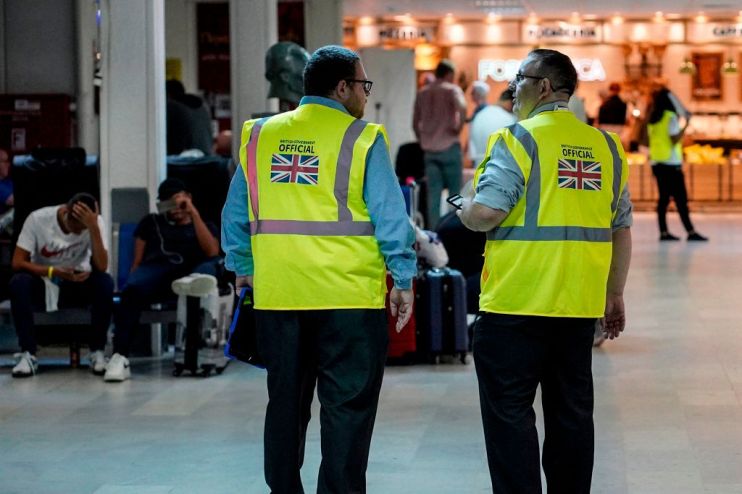Rising UK recession risk frightens businesses

The spectre of recession is looming over the British economy with the country’s huge services sector having contracted in September, according to closely-watched survey data from yesterday.
Read more: UK recession alarm bells ring as UK service sector contracts
The sector – which makes up about 80 per cent of the UK economy – saw the biggest cut in employment in over nine years and suffered a fall in new contract sand orders for the first time this year as growth slows.
British businesses have warned they are suffering under the slowdown. Manufacturers’ export growth was at its lowest in a decade in the third quarter, the British Chambers of Commerce (BCC) found in its quarterly economic survey, released today. Domestic sales growth was the worst since 2011.
Adam Marshall, BCC director general, said “the cold harsh winds of Brexit uncertainty and global trade turbulence” were hurting “thousands of real businesses”.
Services is the latest area, alongside manufacturing and construction, to fall victim to ongoing political uncertainty and a global economic slowdown driven by the US-China trade war.
The news will have worried policymakers as services had previously proved resilient: it was the only sector to grow when the UK economy contracted by 0.2 per cent in the second quarter.
The IHS Markit and the Chartered Institute of Procurement & Supply’s (Cips) services purchasing managers’ index (PMI) slipped to 49.5 in September, down from 50.6 in August. A score of under 50 indicates contraction.
The weak reading means the UK is now the only developed economy with its services sector in contraction, according to Refinitiv data.
“At current levels the surveys point to GDP falling by 0.1 per cent in the third quarter,” said Chris Williamson, chief business economist at IHS Markit. “Coming on the heels of a decline in the second quarter… the UK is facing a heightened risk of recession.”
Read more: Global stock markets bleed red on US-EU trade war fears
Marshall said: “We need to see immediate action to avoid a messy and disorderly Brexit on 31 October, alongside bold measures to stimulate investment and confidence across the UK.”
(Image credit: Getty)